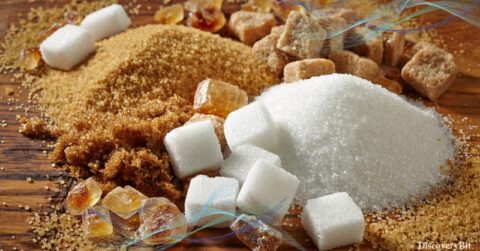What exactly is Processed Food?
It’s crucial to understand the ins and outs of this topic to grasp the foods that we eat daily. In this regard, we will assume that there are two classes of foods: unprocessed and processed foods.
The unprocessed food is what you find in nature – let’s think fresh fruits, veggies, eggs, and whole grains. This class of foods hasn’t been altered; they’re as natural as can be. But on the flip side, processed foods have undergone deliberate changes, often involving chemicals or refined ingredients. At this juncture, one begins to reflect that it’s not just one’s favorite fast food restaurant classics like hamburgers that undergo this metamorphosis!
So, based on the above description, processed foods are, indeed, chameleons, transformed through deliberate alterations. From milk spun into creamy ice cream to grains kneaded into dough for soft bread, each change reshapes the food’s essence. Things like cakes and cookies also fall into this category.
However, it’s not all black and white, as some processed foods do contain what we’d consider “natural” components such as Fruits, veggies, grains, dairy, meat, poultry, and fish. The term “processed” becomes a bit of a puzzle, blurring the lines between what’s natural and what’s not.
So, how do you spot processed foods? Well, observe the deliberate alterations like canning, bagging, or potting. And if a food has been tweaked for longer storage using methods like canning, dehydration, refrigeration, freezing, or sterilization, it’s processed.
Now that the introduction is out of the way, let’s explore the good and the bad of processed food:
The Pros of Processed Foods:
1. Convenience is king here. Processed foods last longer and are easier to transport. This means a wider variety of foods available worldwide and less hassle in the kitchen.
2. Some processed foods have chemicals that make them safer by fighting off harmful microorganisms, reducing the risk of foodborne illnesses.
3. Taste and nutrition can get a boost through processing. Additional nutrients and vitamins can be added, making the nutritional value more consistent.
The Cons of Processed Foods:
1. Convenience sometimes comes with a cost – think excessive salt, hidden fats, and loads of sugar. These can lead to health issues like obesity, heart disease, diabetes, and even certain cancers.
2. Many processed foods lack essential nutrients. Some have had nutrients intentionally removed during processing, making them calorie-dense but nutritionally poor.
3. Ever read an ingredient label and found yourself baffled by what’s in there? Often, processed foods contain artificial chemicals for various purposes, including preservation.
4. Some folks get hooked on junk foods that don’t provide the right kind of energy, leading to crashes and cravings.
5. Refined carbohydrates in processed foods can cause rapid spikes in blood sugar levels, posing a health risk.
But there’s hope! You can minimize the impact of processed foods:
a) Opt for fresh foods like fruits whenever possible.
b) Swap heavily processed snacks for healthier options, like nonfat popcorn instead of chips.
c) Cut back on sugary drinks and go for water more often.
d) Reduce salt intake and try using pepper for flavor.
e) Limit processed meats, as they’ve been linked to certain cancers.
f) Try making your versions of processed foods at home, like DIY salad dressings.
In summary, processed foods have their perks, but are they worth it? This depends on the type and how heavily processed they are. Many would argue against heavily processed foods due to their potential health risks. But by making smart choices and tweaking our lifestyles, we can reduce the negative impacts of processed food.
Tags: define processed food examples of processed foods Health non processed foods Processed food processed foods list Ultra processed unprocessed foods what is processed food








